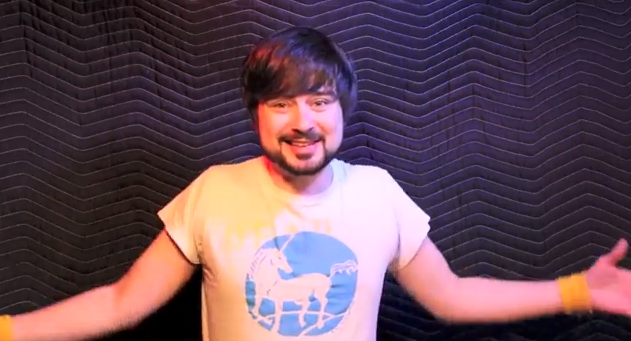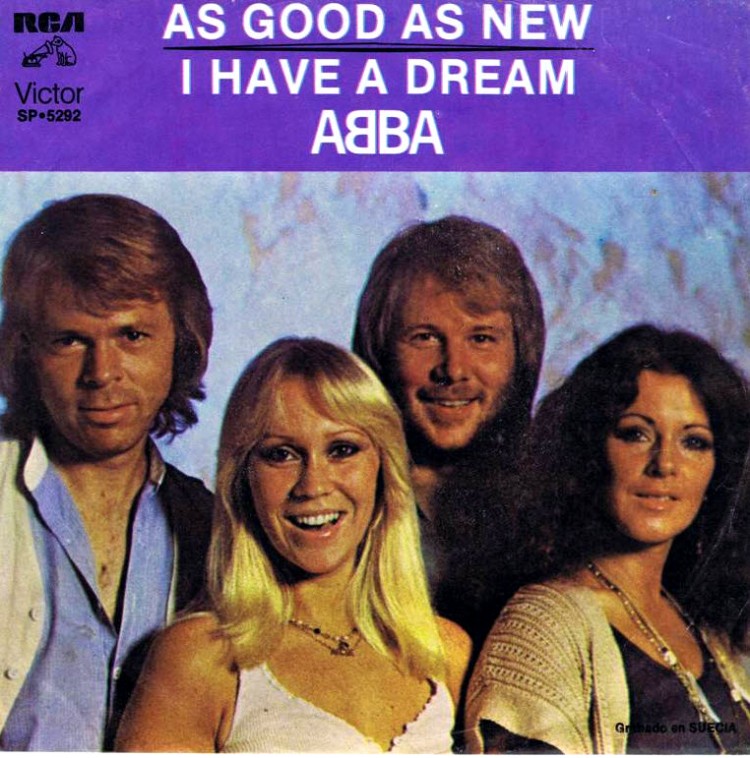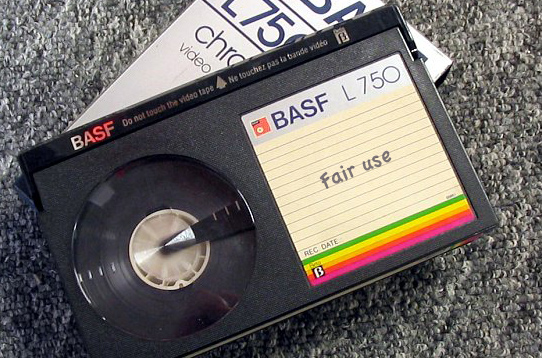We focus too much on how much money musicians or the music business are making to gauge the state of the music world. We should really be looking at the relationships shared by the key players.
The Music Doesn’t Need Saving (Video)
Trying something a little new this week… a video blog.
I hear a lot of people say we need to “save the music” by preserving the old business models of the music industry. “If there are less career opportunities for musicians,” they argue, “surely there will be less good music.” I call shenanigans on this short-sighted perspective. There is more music than ever before, and a new breed of musician is being born, blurring the lines between creator and consumer. Bring on the new thing.
Sweden Blows U.S. Away with its National Music Scene
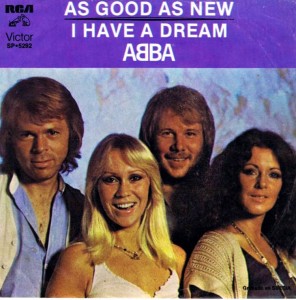 I was reading about a new IFPI report on digital music and how 1 in 5 U.S. music consumers now subscribes to a music streaming service. Man, we are really slow to get this whole future of music thing.
I was reading about a new IFPI report on digital music and how 1 in 5 U.S. music consumers now subscribes to a music streaming service. Man, we are really slow to get this whole future of music thing.
The article says “Of course the number is off the charts in Sweden,” and sure enough, a whopping 48% of Swedes are using some sort of music subscription service. But I couldn’t understand why the article said “of course”, as if it was supposed to be self-evident to me that Sweden would lead the world in streaming music.
As your typical xenophobic US citizen, I revered Sweden as a clean, pacifist, rich and equal society full of well-cultured, well-educated citizens. But I wondered, why are their music fans so evolved?
My first stop was the Swedish popular music Wikipedia page. With a population of around 9.5 million (just a million over New York City), its hits-per-capita has been through the roof since the 70s. ABBA, Europe, Roxette, Neneh Cherry, Rednex (OK, could have done without that one), Robyn, Basshunter, Nina Persson, The Cardigans, Ace of Base, The Soundtrack of Our Lives, Avicii, Meshuggah, In Flames, Opeth… the quantity is matched by diversity. This isn’t even to mention Swedish producers like Denniz Pop and Max Martin who have written some of the biggest hits for U.S. artists in the past couple decades.
Is it something in the cool, crisp, refreshing Swedish mountain spring water?
Well, it was time to hit the offical Sweden Wikipedia page. I quickly found some more clues:
- About 85% of the population live in urban areas.
- Sweden has the world’s eighth highest per capita income.
- The country is ranked as the second most competitive in the world by the World Economic Forum.
- Sweden is one of the world’s most equal countries in terms of income.
Money and urban living certainly add up to heavy music consumption, but let’s dig deeper into the Music subhead:
- Sweden has a prominent choral music tradition, deriving in part from the cultural importance of Swedish folk songs. In fact, out of a population of 9.5 million, it is estimated that five to size hundred thousand people sing in choirs.
Wow, so 15% of Sweden’s population sings in a choir. What do 15% of American citizens do?
- 15% use food stamps
- 15% are anti-Semitic
- 15% believe in godless evolution
- 15% have never been to a concert
OK, well, that’s depressing. Looks like the so-called “cultural leaders” of the world’s IP economy could learn a thing or two about music culture from the Swedes.
I Googled a little deeper and came across a 2010 Pitchfork.com article asking “What’s the Matter with Sweden? Wait, there’s something wrong? It starts:
“The first time the Knife got money from the Swedish Arts Council was in 2001… The electro-pop duo received 45,000 Swedish kronor (SEK), or about $6,327 — ‘pretty standard for albums back then'”
Wait, what? The Swedish government gave an eletro-pop band $6K to record an album? Can you imagine what Southern Republicans would say if the Bush administration gave Gwar $6K?
Reading down the article, one quickly realizes Pitchfork was just pulling a hipster fake out on you, and there really isn’t anything wrong with Sweden. Everything looks right.
Sure, it takes a tax rate around 50% of GDP (it’s closer to 28% in the US), but it adds up to tens of millions of dollars in arts and music funding. We’ve got the National Endowment for the Arts, but try getting a grant out of them for your electro-pop band.
Could it be that simple? Could Sweden’s secret be public funding of the arts?
Copyright Reform Necessary to Protect the Consumer-Creator
Free song sharing is this generation’s VCR.
Twenty years from now everyone in the music industry will look back at the plummeting price of access to recordings and shake our heads much the same way the movie industry looks back at its attempts to outlaw the VCR. How could anyone rationally think otherwise? And yet the entertainment industry has been chipping away at the legal underpinnings of fair use established by the US Supreme Court just under 30 years ago.
In Sony Corp. of America v. Universal City Studios, Inc. — otherwise known as the “Betamax case” — the Court narrowly ruled in favor of the greater good.
Justices Marshall, Powell, and Rehnquist joined Blackmun in dissenting, completely ignoring welfare-based theories of copyright. These justices were siding with the MPAA’s view that any leeway given to copyright infringement, even personal copying for private use, undermined the whole system of copyright.
It’s not that they were wrong in their assessment. VCRs did undermine copyright in the sense that fair use enabled people to make tens of millions of copies of copyrighted material. But nothing happens in a vacuum. Consumers were so busy “undermining” the copyright, they developed a voracious appetite for films and TV shows, and the movie and television industries positively exploded.
The same thing is happening in so-called music piracy, it’s just happening incredibly slowly because the music industry is still for the most part fighting free access to music.
Certainly, creators need to be compensated for their labor. Copyright exists to provide this incentive to work, ensuring creative works get made. It also exists to protect our personhood — our identity as defined by our creative expressions. Copyright should prevent our labor from being unjustly exploited, and our identity from being stolen.
For many, this is where copyright ends because they are only thinking about themselves (it’s something of an American pastime.) They ought to stop and think for a moment, because there are an estimated 315,613,999 other folks in this country alone who deserve consideration.
Copyright is not just about protecting your individual right (or, more commonly, a corporation’s right) to profit from or be fairly represented in the exploitation of their works. It’s about the greater good, a concept that trumps any individual concern. We tend to overvalue our own creative endeavors because the labor and personhood considerations of creativity distort our perception. Our value is high because we worked hard and infused our work with something of personal essence.
But while the price of creative work may be set by individual, society at large will ultimately judge its value. This is why record labels have to fix prices — to override the more reasonable value judgement of consumers by exploiting their control over music access. In a truly free market, the value of music remains high and climbs even higher while the value of access to music approaches utility levels (think Spotify) if not zero. The music industry is fighting the devaluing of access to music rather than the music itself. On the contrary, there is now more music being produced per year than ever before — more bad music to be sure, but much more good as well.
Copyright is supposed to ensure the needs of the greater good are met by stimulating individuals to contribute to that greater good. We recognize that having a market in which one’s creative works have value is a strong driver of individual contributions. But we must also recognize the purpose of copyright is to “promote the Progress” of the public and culture as a whole. In the case of labor and personhood, copyright is the art of balancing the individual need for monopoly protection with the public need to access creative works.
We need to stop looking at this like one creator is producing work for 315,613,999 consumers. It’s the 21st century. One creator is producing work for 315,613,999 other creators.
This culture in which everyone participates as both consumer and creator was still a ways off back in 1984 when the Betamax case was decided. Interestingly, dissenting Justice Blackmun unwittingly predicted a future in which the line between creator and consumer would not be so clear:
“Fair use may be found when a work is used ‘for purposes such as criticism, comment, news reporting, teaching… scholarship, or research.’ …other examples may be found in the case law. Each of these uses, however, reflects a common theme: each is a productive use, resulting in some added benefit to the public beyond that produced by the first author’s work…”
In particular, this quote reminds me of the concept of “semiotic democracy“, a phrase first coined by John Fiske in 1987. In studying television culture, Fiske observed that “rather than being passive couch potatoes that absorbed information in an unmediated way, viewers actually gave their own meanings to the shows they watched that often differed substantially from the meaning intended by the show’s producer.”
This concept finds its legal context in addressing the growing creative, participatory role in culture that consumers are beginning to enjoy. In other words, we must start treating every consumer as a potential creator. This is not to say we need to mandate everyone make a cultural contribution, but only that we need to respect use and sharing of creative works as a potentially creative act, and one that cannot be reduced to mere product consumption because that was the intent of the producer.
Again, the market assigns value and meaning to creative works independent of intent. Increasingly, a big part of that value is in source material or inspiration for a new creative act.
Most of us in the 80s (those of us who were around, anyway) didn’t use our VCR creatively. I knew I was the exception when I sat in front of the TV recording little snippets of commercials and shows until I had an avant-garde remix of bizarrely juxtaposed images. Without YouTube, I had no distribution network (and few friends at the time) and did this purely for personal enjoyment.
I might not have seemed so out of place in today’s culture. Some of the most popular videos on YouTube are remixes of existing clips (much more entertaining than my VCR art). Dubstep and mashups have turned unlicensed sampling into the music of a generation. Even consumption is collaborative, with fans forming their opinions collectively through social networks. Welcome to the world of the consumer-creator.
It’s really not such a long way from creating our own meanings for TV shows in our heads to producing an expression of those unique meanings. We’ve been doing the former since the days of the VCR and earlier, but only recently have the means for creativity grown ubiquitous.
What does a world in which everyone’s a creator mean for copyright? It should mean reform.
We can’t do away with financial incentives to stimulate creative labor, but we have to reassess if a virtually perpetual market monopoly is bringing a chainsaw to a knife fight. There is much about current copyright term length and a narrowing definition of fair use that works against a culture of creativity. We need to allow consumer-creators to freely remix our individual works into new works if culture is to progress. (Creative Commons leads the charge in this arena, and you can find dozens of books promoting the idea of making fair use fairer.)
We should continue to protect the author’s personhood and the “essence” they contribute to their works. But we’re overdue to reconsider the roles of attribution and identity in a culture that is transcending our psychological hang-ups around copying as the core of creativity. (Marcus Boon’s In Praise of Copying is a great start.)
Finally, and most importantly, we need to push back against laws that clearly favor neither the individual nor the greater good. Lobbying and litigation have become the tools used by entertainment industry elite to stifle this new culture of the consumer-creator. Often passed of as acts to protect creativity, the industry is really only interested in driving consumption. Corporations like to keep creativity at an easily co-opted and exploited level.
If we can keep the corporations in check, one day, passive consumption will be taboo and participatory creation status quo. It’s what’s already going on in our heads. To keep culture locked up just so large corporations can profit (be they record labels or tech companies) is the opposite of copyright’s charter to promote progress. As the creator-to-consumer ratio changes, so too must the law.
How Many Musicians are There? Copyright Change Requires Answer
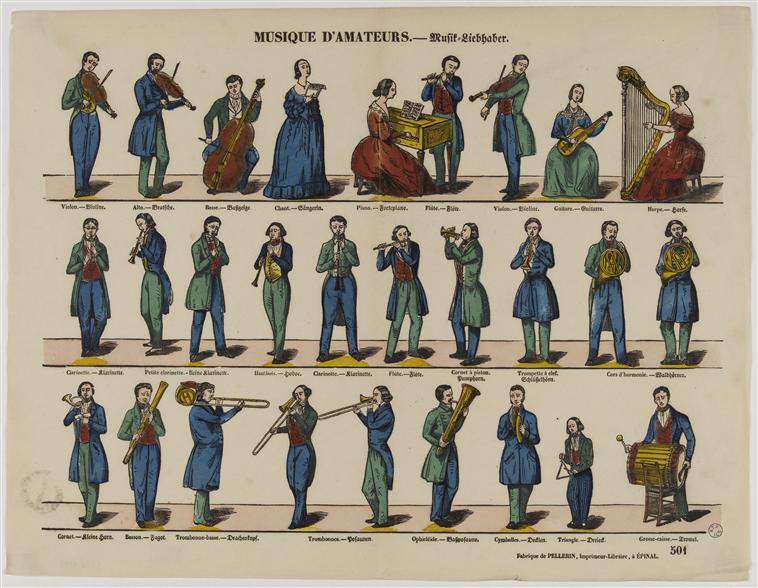
How can anyone profess to know what’s best for musicians when there is total disagreement as to what a musician is?
In conversation after conversation, I have come to the following conclusion: the fundamental disagreement in the copyright vs. free culture debate is over opposing definitions of “musician”.
In one corner, we have the musician as defined by the copyright industry. This is the definition with the most qualifiers. To be a musician in their eyes, you must be making a living playing music, or at least actively pursing a music career. There is an aesthetic judgement too — the “quality” of the music must demonstrate a level of competency above the amateur. This is a subjective assessment, but factors include fidelity of recording, originality in composition, and technical acuity in performance.
In the other corner, we have free culture advocate. The underdog. Their definition of musician has virtually no qualifiers — one must only be composing, performing or recording actively to be considered a musician. Quality, skill, experience… these are not necessary for musicianship. One need only play.
Much can be said about these two opposing philosophies, but I am going to stick to how these attitudes relate to the constitutional purpose of copyright, to “Promote the Progress of Science and Useful Arts”.
There has been much debate over what “Progress” means in this clause. One can imagine our two fighting definitions as revealing different interpretations. The copyright industry would likely consider “Progress” to be any work of art that has demonstrated market value. They would see the inclusion of “Progress” as intent to separate amateurs from professionals in economic terms.
A world full of amateurs would not fulfill the copyright charter for these folks. It doesn’t matter what “Arts” progress if none of them are “Progress”. “Progress” for them is the conversion of the amateur musician to the professional musician. This view is driven by economic imperatives, and it comes as no surprise those musicians and businesses that have profited the most from copyright are its most vehement supporters. This view is more in line with the “labor / desert” theories of copyright which justify granting market monopolies as a way to make available the “just deserts” of creators’ labor as a critical incentive to create.
The free culture advocate is quick to point out the hypocrisy in the above view. “Progress” doesn’t emerge out of thin air. Everyone starts as an amateur. There could be no music professionals without a thriving amateur musician scene. How soon the professional forgets they were once the amateur. “Progress” for them is represented by the conversion of the non-musician to the amateur musician. This view is largely driven by creative or cultural imperatives.
It also is demonstrably true that a musician who defines “Progress” from an economic standpoint will often end up working in the music industry instead of being a musician. There simply isn’t much money to be made being a musician, and what profit exists is fiercely competed over, dependent on impeccable timing bordering on luck, and rarely lasts.
On the other hand, most musicians hold the view that defines “Progress” in creative and cultural terms. This is great for culture, but bad for musicians making money. It explains why musicians have historically been bad earners. It also helps explain the system of exploitation the entire record business is based on.
So, the music industry overwhelmingly defines musicians as those who are contributing measurable value to the music economy. Musicians define themselves as creatives making cultural contributions, which may subsequently be recognized financially. What about fans?
I would suggest most fans’ attitudes of what defines a musician fall somewhere between the opposing poles. Which side they gravitate to depends on their musical tastes. Those who enjoy discovering obscure acts and new artists probably hold more of a cultural view, while those with more mainstream pop tastes might have a narrower view of what constitutes a musician. The former celebrate the value in music that isn’t necessarily economically viable, the latter celebrate the value in music produced by big budgets and big business.
In other words, all approaches are variably valid in the eyes of the public, and this is the group copyright is meant to protect. Certainly, copyright is a tool for creators, but its charter is to benefit the greater good. The needs of the musician and the music business are intertwined, but ultimately the needs of the commons take precedence in concerns over copyright’s purpose.
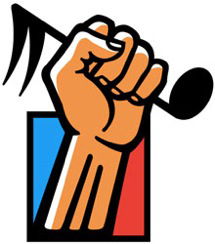
The best and most recent attempt to answer the vexing “How many musicians are there?” question was undertaken by the Future of Music Coalition (FMC).
The conclusion? “There is no reliable way to measure the real size of the US musician population.”
Leaves a little something to be desired, doesn’t it? The FMC highlights three key reasons for their assessment:
“(1) There is no agreed-upon definition for “musician”, no certifications or qualifying tests; (2) There is no one organization that represents all musicians; (3) The government’s statistics excludes a huge chunk of the musician population by their own counting standards.”
It’s not likely we’ll have a single organization that represents musicians anytime soon because amateur musicians by definition aren’t professionally represented. Nor will the government be able to shed any light on the uncounted musical masses huddled at the edges of the music career world.
The only way we’ll be able to reform music copyright to be equitable to all is to agree upon the definition of “musician”. I would be remiss to leave the issue hanging here unresolved, so here’s my proposition for how we can move forward in this endeavor:
There is a concept in copyright law called “extralegal norms”. Sometimes traditions and standard methods of operation achieve the “Progress” goals of copyright without having to involve messy and expensive legal procedures. In this respect, under utilitarian theories, copyright is justly viewed as a “necessary evil” that can be rendered unnecessary if the culture of creation provides enough incentive and protection to creators already.
For example, comedians are not granted copyright in part because of extralegal norms that involve the self-policing public shaming of joke-stealers (Joe Rogan vs Carlos Mencia being the classic example). Like fashion, which is similarly unprotected by copyright, comedy is often defined by its context — a moment in time that is fleeting. As such, fashion and comedy are thought by many to be better off without a copyright system that might stifle that rapid innovation required to stay “of the moment”.
This unprotected creativity is starting to sound a lot like music. I think it’s time to take a serious look at the parallel extralegal norms in music and consider that in many respects musicians may not need copyright protection at all. Among them:
(1) Cost of production is becoming so low, musicians no longer have to give up their master rights just to have an album made. The less musicians choose to be exploited this way, the less copyright protection they need.
(2) Songs were meant to be shared. Online, copyright is increasingly unenforceable. An unenforceable law does no good, and when it is enforced, it limits sharing — which is in many ways the purpose of the song’s creation in the first place.
(3) As the language of emotion, music creation is primarily driven by a deep-seated need to express oneself. Most musicians make music for the love of doing so, not for the money. As such, copyright less necessary to provide an incentive for the labor of music creation.
(4) Music increasingly involves collective authorship. In many ways the “amateurization” of music is bringing us back to music’s folk roots. The folk tradition does not require copyright incentives for it is an expressive practice where sole authorship is downplayed in favor of collective, historic tradition. Joint authorship copyright has historically been avoided as a creativity-stifling minefield of competing conflicts of interest.
(5) There are self-policing features in music to prevent outright stealing of material. I would look to the fan outrage over the appropriation of the “seapunk” micro-genre by Rhianna as a parallel example to Mencia vs. Rogan. Such co-option is becoming less of an economic threat because the web connects fans in a way that amplifies their collective attitudes. Witness how fast Seapunk was dropped by those in the mainstream who were caught with their hands in the cookie jar attempting to co-opt it.
There are many more reasons why copyright might also stifle creativity and music in general — they can be found throughout my blog. Here I tried to stick to the extralegal norms that warrant it unnecessary or at least in dire need of reform.
The critical and final point I want to make is that all of the above strongly suggests to me we need a broader definition of “musician”. While I find truth on both sides, I can’t find a single good reason why we should narrow our view of what constitutes a musician.
We should openly embrace the “amateurization” of music and build a music economy and culture in which the millions of aspiring professionals get a fair shot at making a buck by being discovered and supported by their prospective fans.
How do you define “musician”? Is it time to change our collective attitudes and widen the circle?
Who’s Killing Culture? Changing the Tone of the Copyright Debate
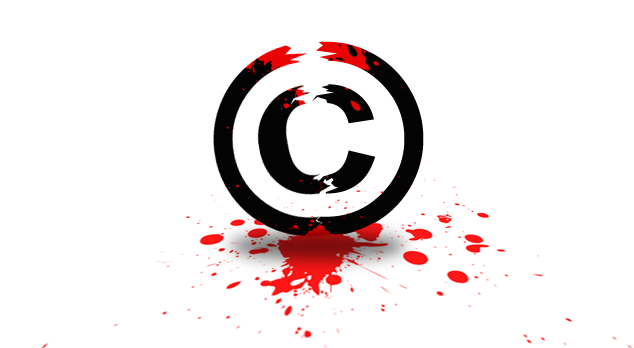
This morning, the Web is abuzz debating copyright, and the comments coming from both sides continue to be snarky, obstinate, and most importantly, worlds apart.
Clearly, it’s better to have this acrimony than not. The copyright debate has been stifled by industry leaders and government officials for too long. Case in point is what caused the recent copyright kerfuffle — the Republican think thank that recently released a report touting copyright reform, then retracted it due to pressure from Big Content…. well, they fired the guy responsible. Conversation over.
Yes, the political and industrial elite are still trying to ensure we don’t even have this discussion. We may be a bunch of people screaming at each other in a room, but at least our voices are being heard.
But why does there seem to be no middle ground between those who believe copyright is critical, and those who believe culture should be free?
Or, to put it another way: Why can’t copyright supporters realize their policies are killing our culture, and why can’t free culture advocates realize without copyright, culture would fall apart?
What we have here is a complete contradiction in positions, so the violent clash comes as no surprise. Each side believes the other is killing culture, and will fight to the death to protect it.
So who’s right?
The problem with the debate is that both sides think they’re fighting over the same culture — and in a way, they’re right. Culture by definition is something we all share, an invisible but interconnected web of expression and communication.
But that’s not the way the debate should be framed for one big reason that virtually everyone is ignoring:
We are trying to kill each other’s culture, trying to stop each other from sharing the way they want to share. And it’s got to stop.
There are no absolutes in human culture. Some folks want to be Steven Spielberg (Star Wars and Jaws), others are happy being like Harmony Korine (Gummo, Kids, Trash Humpers). Both represent the apexes of their respective cultures — the biggest difference is that Spielberg’s culture is about pleasing the greatest amount of people and making the most amount of money, while Korine’s culture is pleasing only himself and his small niche audience, worrying about money only as far as it allows him to sustain his art.
The world is full of Korines wanting to become Spielbergs. At some point along the way, the transformation from Korine to Spielberg requires being exploited and making compromises. This is precisely where art crosses over to business. How quickly the Spielbergs forget their humble beginnings, and how quickly the Korines resent their success and judge them for it.
We all need to support the Korines, but over time the copyright system has transformed from something to protect the Korines, to something that protects the Spielbergs. That should come as no surprise to those who understand copyright has always been meant to protect business, not art.
Want to bridge the polemical gap? Let’s start with the truth: we need each other to succeed. The Korines need the Spielbergs to keep the market going, the the Spielbergs need the Korines to keep the art going. Without the Big Content megastructure, there wouldn’t be as much business opportunity for the indies, but without the indies, Big Content dies.
We should celebrate our passions, whether they be business, art, or a mix of both. But we have to be cognizant that while we may be at opposite ends of the media ecosystem, there’s room for both of us to thrive if we can foster mutual respect. Only then will we get the kind of copyright reform we need, or else both our cultures may die.
In Defense of Free Music: A Generational, Ethical High Road Over the Industry’s Corruption and Exploitation
 Note: This was posted as a response to David Lowery’s Letter to Emily White, which was in response to her article “I Never Owned Any Music to Begin With”. White is an intern at NPR’s All Songs Considered, Lowery is a contributor for The Trichordist, a technology and ethics blog.
Note: This was posted as a response to David Lowery’s Letter to Emily White, which was in response to her article “I Never Owned Any Music to Begin With”. White is an intern at NPR’s All Songs Considered, Lowery is a contributor for The Trichordist, a technology and ethics blog.
As a musician and huge music fan, your emotional plea for our generation to renounce Free Culture so that musicians can make a living was indeed stirring. But beyond the choir you’re preaching to, we both know it’s falling on deaf ears. Asking today’s music consumers to kindly start paying for recorded music again because it’s the ethical thing to do isn’t only unviable — it’s not the ethical thing to do anymore. Free Culture is an ethic, and I think I can speak for my generation when I say we believe it to be the high ground over the way the music industry used to be run.
Your heart is clearly in the right place. But unlike you, I think most of us, our generation included, have a deep, unwavering motivation to compensate the musicians who enrich our lives. Here’s the crux of our disagreement: You claim listeners aren’t paying as much for access to music anymore because they’re unethical and no longer find it important to compensate artists. You and many others make this accusation over and over again without providing any clear evidence other than unconvincing anecdotes.
I believe the opposite can be clearly proven: Today’s musicians are held in higher esteem by listeners than ever before, and it’s the industry that has lost their respect (and money), due to a history of unethical behavior. The first point is proven by the sheer unprecedented volume of music now being consumed. The latter point is proven by even a casual glance into the history of the music industry.
Should listeners feel guilty for having free access to music? Of course not. It’s the best thing ever to happen to a music lover. Sometimes I wonder if all the Free Culture-haters are just jealous that they had to pay $20 per CD. You realize that price point had nothing to do with compensating artists, right? That ridiculous number was the product of illegal price fixing, obscene recoupments, payola, unethical ‘breakage’ fees and keeping statutory royalty rates for artists low, to name just a few reasons. Meanwhile, our generation experiences the ecstasy of free or near-free access to the global jukebox.
Should musicians feel threatened by listeners accessing their music for free? Only if their entire business model is based on forcing their fans (and potential fans) to pay for access to music. This is a model that our generation is using technology to reject. The exposure granted by free access to music is exactly what most musicians are after. Free exposure is only a lost profit opportunity for the minority of musicians who succeeded in the pre-digital record business paradigm. Most of the time musicians didn’t profit beyond statutory royalties anyway, because they could never recoup the cost of marketing and advertising. Now good music goes viral for free, and even generates ad revenue for the creator!
I’m going to level with you. You and many other Free Culture detractors are people from social circles with musicians that did well in the past but whose revenue dropped dramatically along with industry profits. I think the driver behind this blithely unrealistic “let’s go back to the way things were in the 90s” movement is pretty straightforward — you tasted profits from a business model that is no longer sustainable. You want your industry back.
We don’t.
Consider for a moment how were the profits of the “old” music industry won: By subjecting listeners and musicians — and indeed, our very culture — to a laundry list of horrendous commercial exploitation. Price fixing, payola, unpaid royalties, market monopolies, ticket surcharges, obscenely exploitative record contracts, manufactured popularity, censorship, perpetual copyright and destruction of fair use and the public domain… the list goes on and on. In short, the old way of doing things sucked and we don’t care if a few of that era’s successful artists no longer get mailbox money for music they recorded decades ago. We certainly don’t care if the record industry, which enabled these injustices, dies a slow, public death.
On the other side of the Free Culture argument, you have people like me: unsuccessful musicians and frustrated music fans. We are by far the majority, but our apathy is high. Critically, this does not translate into consumer apathy for compensating musicians. Quite the contrary, our apathy for corporations is driving a new appreciation for the original creators and producers of music, based on free access to recordings.
I believe my story is somewhat typical of the unsuccessful musician. After years of false starts and bad management I finally “made it” and got signed to an emerging indie. The advance was small, the recoupment high. But we had a great booking agent, nationwide tour support and opened for big bands in NYC. We got a sync license with MTV and some film placements. We had a high-powered manager and one of Britney Spears’s lawyers. Our friends were signed to Capitol, Sony began showing interest in us. We were on the cusp of making a living playing music. But while our fan base was rabid and widespread, it just wasn’t big enough. It wasn’t just a matter of “exposure” as most musicians whine. The business of the band didn’t scale, and eventually petered out. While I never quit playing music or trying to make a business of it, music became more of a hobby and I was now among the vast ranks of unsuccessful musicians.
Guess who was pissed (besides our band)? Our fans. Having supported us all those years, they now saw the apparatus of the music industry whittle away our faith in the business of our band to the point where we quit. It’s easy to look over this fact, but it’s critical not to: Music fans talk to musicians, and most musicians have historically not been happy with the way the industry worked. It wasn’t that we had bad music or bad management — our fan base just wouldn’t scale big enough to support our business team. I can see why those who succeeded in the past want to protect the old business model. It strongly favored the incumbents and built a nearly insurmountable barrier of entry that the average musician had little chance of scaling.
For both musicians and listeners, failure was the common narrative of the record industry. We sat and watched our friends write great music people loved, yet they were unable to make a living doing so, even and especially after they were signed. We saw the rare few musicians who truly made it big falter in the excesses of the industry, becoming drug addicts as the drive for manufactured popularity hollowed out the meaning of their music. Add to that the aforementioned widespread industry corruption. Factor in decades of consumers buying albums of mediocre music for one or two good singles. Pile on a digital distribution cost of near zero. Put a recording studio in every home with a computer. Lastly, drop the RIAA suing music fans for sharing music as the cherry on top, and there you have our generation’s hatred of paying for access to music.
If there is an ethical dilemma here, clearly it is your generation’s music industry, not our generation of listeners, that must bear the brunt of the blame.
I appreciate your statement that “on nearly every count [our] generation is much more ethical and fair than [your] generation”, but I don’t understand why you’d single out musician’s rights as something we specifically don’t respect. After such praise, a claim like that just seems silly.
Free Culture opponents often suggest technology somehow caused our generation’s desire for compensating musicians to evaporate. But it was clearly the corruption and ineptitude of the industry itself that is to blame for this negative attitude toward paying for music. Digital music technology provided the opportunity musicians and listeners have been waiting decades for — to balance the industry’s unchecked power, and maybe eke out a more sustainable living in the process.
Fans formerly had no apparatus to directly compensate artists. Now that they have tools like Kickstarter and Bandcamp, we’re seeing millions of dollars pouring directly into musician’s pockets. This represents a fraction of the so-called “lost value” of paid access to music, but given all the money and lobbyists the old industry has thrown at and against digital music innovation, it’s remarkable nonetheless.
That’s the thing about asking our generation to fix the record industry. We’re already doing it. We’re connecting artists directly to fans and bringing back patronage, a far less exploitative model that is emerging as the foundation of the new music career. We’re using crowdfunding to finance our work. We’re using digital tools to democratize distribution and licensing, with fairer publishing deals. Instead of basing our entire career on one album dropping or flopping huge, we’re ditching the LP in favor of a steady stream of singles, what fans really want. Apps are the new album. Production is going more lo-fi but is becoming more diverse and original in the process. These are the viable solutions I was talking about earlier. It’s all actually quite liberating because none of it involves being exploited by the music industry, and if it does, it’s certainly far less than in the past.
And yes, we’re selling T-shirts. I wouldn’t have to sell ‘em if I had a dollar for every time I heard, “your music is free, so what, you’re going to make a living selling T-shirts?” But the profit margin is good and they’re moving off the merch table like CDs used to. You have to realize that when the physical media that holds the music is no longer a profitable product, there are myriad replacements which tie the music to a physical product that can be profitably sold. The critical thing to realize here: the devaluation of the music recording increases the value of merch for the artist. Our fans are gonna spend $10 at our merch table anyway — should we sell them a T-shirt they will wear everywhere for a 150% markup, or should we sell them a CD they’ll burn and shelve for the statutory rate of 9.1 cents per song?
Besides selling recorded music, there are dozens of revenue streams for us to pursue. Many are accessible to musicians directly for the first time thanks to the democratizing effect of digital technology. For you to blame technology for unfair artist compensation is odd, for it was unethical industry dominance over the technology of vinyl, radio, cassettes, CDs and the overall apparatus of distribution that created the record business in the first place. The only difference with today’s technology is that the exploitation-crazy record business doesn’t yet have a stranglehold on it. Whether musicians succeed or fail is now up to the musicians and the fans themselves, not the industry.
So when you ask my generation to fix the music industry, we shrug our shoulders — but not out of apathy for music or musicians. We know the music industry sucked and can be better, so we’re not going to support the old way of doing things. We are at a crossroads. There will be a period of hardship and confusion. But don’t tell me we ethically don’t support artists. We listen to vastly more music than your generation ever did. We like, on average, a greater diversity of music than your generation ever did. And we’re still spending money, we’re just being attentive to where it’s going. We want to compensate the musicians, not the industry. It’s not only our choice, but our cause and our fight. The industry is throwing all the money, lobbyists and lawyers it can toward legally protecting its right to intermediate the direct fan-to-artist connection we have sought for decades and finally hold in our hands. We’re not going to allow Free Culture detractors to let that slip away just so they can collect royalties and recoup advances on music made in a bygone era.
We’d love to solve the music industry — really, we would — but we kind of need to save our culture first. Not incidentally, we believe artist compensation as critical to saving our culture. Pining for the old days when we enriched entertainment conglomerates instead of technology conglomerates? Who cares which industry is trying to co-opt our culture today, let’s take as much control as we can while technology affords us the opportunity.
I hear lots of crying about the traditions of the old business model, from the beauty of album art to the selling of millions of records. But you know what’s really sad? It will only be a few years before the entertainment conglomerates including the “Big 4″ record labels (or soon to be “Big 3″, how fair is that?) push back against the technology industry with a SOPA, PIPA or CISPA-like bill that passes into law. By then it will be too late and we’ll be crying over a lot more than our lost free access to music. Our culture may be lost in the unsustainable abyss of capitalism run amok if we the people lose too much control over technology during this critical transition.
I think I speak for most musicians when I say I’m going to make the best music I can until the day I die, and that money only determines how much time I can dedicate to that pursuit. There are way too many other musicians out there getting exposure for me to even entertain the argument that the current environment dissuades one from being a musician. I have a $1,000 studio in my basement that would have cost $100,000 a decade ago. I can make and distribute an album for free, and crowdfund a basic living doing nothing but music if I can generate at least 1,000 fans who spend $50/year with me on average (many $20 supporters and a few big backers). All I need to do is write a year’s worth of good music. With fifteen years as a musician under my belt I think I can manage.
(Not incidentally, I have other life skills I am employing to make my living, which is a very underrated issue in and of itself. What percentage of your income must be derived from music to be considered as “making a living playing music?” What about those whose non-music careers enable their music success, like website designers or audio engineers? If you manage a great music career, are you a successful musician or a successful manager? Furthermore, aren’t we all musicians? Most of us have the ability to make music but just don’t practice. Instrument and recording equipment sales are on the rise, so musicianship must be too. Everyone is already a DJ, how long before listeners are considered musicians? But that’s a subject for another article…)
It’s obvious this new music industry is crappy for scaling a band into a big blockbuster. But we are slowly getting over the rock star trip. The new music industry helps numerous smaller bands scale into moderate success. As the success stories mount, fans are starting to believe in supporting music again. Try to tell Amanda Palmer or her 24,883 fans who collectively raised $1.2 million dollars on Kickstarter that the old way of doing things was better. Then realize her story is becoming less of an exception with each passing day.
All this talk about not being able to make a living as a musician is nothing new at best. At worst, it’s dangerous, because it perpetuates the myth that only through charging access to music can one have a music career. It’s that myth that is keeping us from entering a new golden age in music. Emily White was simply telling us the truth. Come on, you know she would not have written the article if she didn’t care about compensating musicians. She works for freakin’ NPR on a show that regularly breaks new acts. It’s time to look inward and consider that Free Culture is our generation’s reaction to the ethical failings of your generation’s music industry.
Musicians and Listeners, Your Mission, if You Choose to Accept It: Save Our Culture
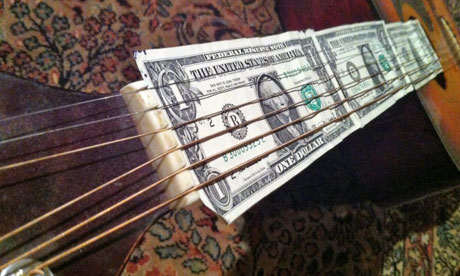 Music evolved alongside language and culture over millions of years to form a universal method of communicating emotion. For most of our species’ history, music’s primary purpose was to unify communities. Over time, various forces conspired to make music’s primary purpose entertainment. Chief among these was the music industry, which subjugated and exploited cultural evolution and unity for profit.
Music evolved alongside language and culture over millions of years to form a universal method of communicating emotion. For most of our species’ history, music’s primary purpose was to unify communities. Over time, various forces conspired to make music’s primary purpose entertainment. Chief among these was the music industry, which subjugated and exploited cultural evolution and unity for profit.
The original intent of copyright law was to protect content creators’ livelihoods while promoting cultural evolution by preserving the creative environment. Instead, the music industry (itself now a subset of a hyper-consolidated military-industrial media oligopoly) corrupted the law to steal musicians’ profits and stifle creativity. While the industry’s rapid expansion of the market during the 20th century certainly helped spread music for and wide, the cost of this commodification on our culture and creativity was heavy.
Over the previous decade, digital technology has disrupted the balance of power between musicians, listeners and industry. The record business is no longer sustainable in an era of free access to music. Unsurprisingly, the music industry, with its history of ineptitude and entitlement, is once again throwing all the money and lawyers it can at changing the laws in their favor. As musicians and listeners, we stand at a crossroads. Do we take advantage of the opportunities technology has given us and actively redefine music in the 21st century to be a force of unification once again? Or do we continue to allow the industry to subjugate the universal method of communicating as a means for enriching corporations?
Rethink Music Conference Recap: Top 5 Lessons
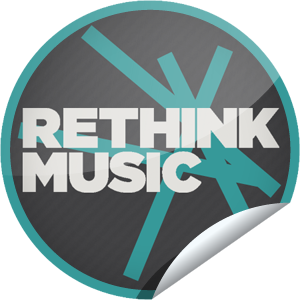 Several weeks ago I attended the Rethink Music conference in Boston. I can honestly say it felt like I downloaded the entire music industry in 48 hours. A non-stop parade of executives and managers concisely detailed the challenges they faced in the digital music age. In panel after panel, their guarded optimism shone like a dull reflection off a classic automobile that won’t start. Between furious note-taking and tweeting, I got all the the insight, confidence and enthusiasm I needed to begin writing the book I’ve been planning for ten years.
Several weeks ago I attended the Rethink Music conference in Boston. I can honestly say it felt like I downloaded the entire music industry in 48 hours. A non-stop parade of executives and managers concisely detailed the challenges they faced in the digital music age. In panel after panel, their guarded optimism shone like a dull reflection off a classic automobile that won’t start. Between furious note-taking and tweeting, I got all the the insight, confidence and enthusiasm I needed to begin writing the book I’ve been planning for ten years.
I want to extend thanks to the organizers and everyone who made this conference possible. Attending it changed the way I look at music and the music industry forever. Writing a book about musicians, fans, technology and the music industry has been a dream of mine since Napster hit the scene. After spending the beginning of the year cataloging my key thoughts and ideas from the past decade, I am now tackling this monster project every day.
I approached the conference deeply entrenched in my disdain for the overall apparatus that controls access to and thus commodifies music. I believed that technology got us into this mess and could get us out of it. I felt that music should be free like water (and bottled for profit when it serves the artist’s best interests). Most importantly, I felt that our culture had become a wasteland for the benefit of a corporate media oligarchy.
After attending the Rethink Music conference, that smoldering resentment of the exploitative music industry has never been more fully stoked. The trampling of artists’ and fans’ rights in a quest for revenue continues unabated, but you can’t blame the industry. It’s their job. But I’m not writing the book to change the attitudes of the music industry. I’m trying to change the attitudes of fans and artists — it’s the only way to force the industry to change.
Here are my five big “lessons learned” from the conference:
#5 – Lawyer Jokes
I learned what many Americans already know — that lawyers are generally evil, and entertainment lawyers are worse. I always knew IP law was horribly broken, but I never realized how this was the absolute bedrock of the talent exploitation business. he lawmen justify their dubious ethical position by telling musicians, “I’m doing this to protect your rights and revenue”, which rings about as true as a cigarette company telling a smoker they are protecting their freedom of personal choice. What’s worse — with rock and pop publishing deals involving multiple parties, I learned that some big deals just don’t get made. The result? The rights holders can’t afford legal representation to make a deal after the fact, caught in a Catch-22 because the deal isn’t done. Millions of dollars are floating around unpaid because deals don’t get made, period.
#4 – Unintellectual Property
I learned the industry is really as dumb as you think they are when it comes to technology. Incredibly, Napster hasn’t really taught them anything, now 10 years down the road. There were a few exceptions — Open EMI’s pre-cleared license hacker sandbox was the most notable. The Echo Nest is clearly and deservedly well-positioned to become industry tech darlings, enabling the big boys to play with the same tools the small, agile tech startups hold inherent to their hacker talent and creativity. But by and large, the entertainment is a lot like the government — it still doesn’t understand IP in the 21st century, and thinks it can use the old tactics to prevent the freeing of music for the good of fans and artists (to benefit the industry). But without technology in their blood, it’s going to be a multibillion dollar quixotic struggle of epic proportions to try to steer the future of music into conglomerate control. Since they can’t dam Niagara Falls, all they can do is pass laws to make it illegal to visit. But what happens when all the rivers flood? Consider that in the U.S. Apple generates over 100x the annual revenue of all domestic record labels combined, and then you see how badly the music industry needs help in the technology space. This is all so ironic because the entire record industry is based around leveraging technology to make people pay for music.
#3 – Complexity
I learned that one of if not the biggest impediments to the industry generating revenue in the digital space comes from their technological stupidity. One of the main themes of the conference was how screwed everyone will be for years to come because of the industry’s inability to manage the information that is responsible for profitability. There are an infinity of micro payments flying around for songs with different metadata and all manner of licensing, publishing and other exploitation rights and rates to be tracked. Though there are myriad solutions being put on the table, the industry seems to have collectively shrugged its shoulders, hoping the geeks will figure out eventually if they throw enough money at the problem. I heard a lot of guarded optimism as a facade for folks who were clearly flummoxed by the complexity of digital music analytics.
#2 – Gamification of Social Music Advocacy
I learned that what I believe to be most exciting and promising thing happening in music today — the gamification of social music advocacy — is something the industry is largely oblivious to. While the conference’s Genesis award winner Have You Heard was honored for proposing such a system, it’s insanity that the big players like Spotify had nothing specific to show in that regard. Perhaps they thought they were protecting “trade secrets” but I’ve got news for them: this is exactly why the music industry is choking. someone smarter than you is going to beat you to it. You need a Turntable.fm to come along and flout licensing until the Big 4 say, “why, look at how you’ve grown! Accept our terms or we’ll kill you.” That’s the industry’s current model for innovation — let the geeks figure it out, then buy it or sue it out of existence. For the young entrepreneurs fresh out of Harvard who proposed the “FourSquare for fans” idea at the conference — I’m afraid this too could be your fate.
#1 – Artist Responsibility
Perhaps the most important lesson of all: I learned that when artists blame the fucked up music industry for their failure to succeed — or worse, their failure to get paid from their success — they’re ultimately blaming the industry for their own failure to understand the music or the business. There are a million “How to Succeed in the Music Industry” books, none of which have ever helped anyone write a good song. Conversely, there are thousands of great songs written by musicians that no one will ever hear, because the artist has no faith, interest or aptitude in the music business. Why should they? The industry is actually OK with its role as artist scapegoat, because if the artists really understood their responsibilities, they wouldn’t have to put up with such exploitation. Being a musician is really about being an entrepreneur, starting a small music business. What we need is millions of small music businesses, not a handful of monopolies trying to squeeze the last dime out of a dying industry, willing only to co-opt and rarely to innovate. Music, like life, is free and alive — and as they said in Jurassic Park, “life finds a way.”


